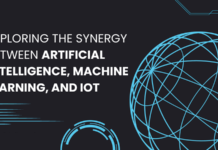Artificial Intelligence (AI) has been revolutionizing the business world, from automating tasks to improving customer experience, and now to supplier selection and management. AI has the potential to optimize supplier selection and management, saving time and resources while ensuring the best supplier for your business.
In this article, we will explore the use of AI in supplier selection and management. We will examine the importance of supplier selection and management in business, the traditional methods of supplier selection and management, and the limitations and challenges of these methods.
Furthermore, we will discuss how AI can optimize the supplier selection and management process, the benefits of using AI in this process, and case studies of businesses that have successfully implemented AI in their supplier selection and management. By the end of this article, readers will have a comprehensive understanding of the potential of AI to revolutionize supplier selection and management, the benefits it can bring to businesses, and the challenges they may face.
The Importance of Supplier Selection and Management
In any business, the selection and management of suppliers is crucial for success. The suppliers chosen can significantly impact the bottom line, the quality of goods and services, and the level of risk involved in the business.
1. Impact on the bottom line
Selecting the right supplier can have a significant impact on the business’s financial performance. By choosing a supplier with competitive pricing, the business can reduce costs and increase profits. Furthermore, choosing a reliable supplier who delivers quality goods and services can help the business build a loyal customer base, leading to increased revenue and growth.
2. Quality of goods and services
The quality of goods and services provided by the supplier directly impacts the quality of the products or services provided by the business. By choosing a supplier who delivers high-quality products, the business can ensure customer satisfaction and build a reputation for excellence. On the other hand, choosing a supplier who delivers subpar goods and services can result in dissatisfied customers, negative reviews, and a damaged reputation.
3. Risk management
Suppliers can pose risks to the business, such as supply chain disruption, quality issues, or unethical practices. The selection and management of suppliers can help mitigate these risks. By thoroughly vetting and regularly assessing suppliers, the business can ensure that they are operating ethically, adhering to regulations, and delivering quality goods and services. This can help reduce the risk of supply chain disruption and improve the overall risk management of the business.
Traditional Methods of Supplier Selection and Management
Traditionally, supplier selection and management have been carried out through manual processes, which are time-consuming, involve limited information, and are susceptible to human bias. In this section, we will explore these limitations in more detail.
1. Time-consuming
The traditional methods of supplier selection and management involve manual processes, such as filling out forms, emailing back and forth, and making phone calls. These methods are time-consuming and can lead to delays in the selection and management process. For instance, businesses may have to spend a lot of time filling out forms to assess the capabilities of potential suppliers, which can be a cumbersome and lengthy process.
2. Limited information
Traditional methods of supplier selection and management often involve limited information about the suppliers. For instance, businesses may rely on references, reputation, or limited data to select and manage suppliers. This limited information can result in choosing a suboptimal supplier or failing to identify potential risks.
3. Human bias
Human bias is another limitation of traditional supplier selection and management methods. When human decision-makers are involved, there is a risk of unconscious bias based on factors such as personal relationships, preconceptions, and limited experience. This can lead to selecting suppliers that do not meet the business’s needs or failing to identify potential risks.
Traditional methods of supplier selection and management can be time-consuming, involve limited information, and are susceptible to human bias. These limitations can result in suboptimal supplier selection and management, leading to increased costs, decreased quality, and higher risk. Therefore, it is essential to explore alternative methods that can overcome these limitations and optimize the supplier selection and management process.
The Role of AI in Supplier Selection and Management
AI can play a critical role in optimizing the supplier selection and management process, addressing the limitations of traditional methods. In this section, we will explore how AI can improve supplier selection and management.
1. Access to extensive data
AI can analyze extensive data sources, including public records, social media, news articles, and other publicly available information to provide a more in-depth understanding of potential suppliers. This information can help businesses make better-informed decisions when selecting and managing suppliers, reducing the risk of selecting a supplier that doesn’t meet their needs.
2. Reduced human error
AI can help eliminate human error in the supplier selection and management process. By automating repetitive tasks, AI can minimize errors that may occur due to manual processes. Furthermore, AI can provide a more objective evaluation of suppliers, removing human bias from the selection process.
3. Efficient supplier selection process
AI can optimize the supplier selection process, providing businesses with a more efficient and streamlined process. For instance, AI algorithms can automatically screen potential suppliers based on pre-defined criteria, ensuring that only the most qualified suppliers are considered. This can save businesses significant amounts of time and resources, allowing them to focus on other critical aspects of their operations.
AI can provide access to extensive data, reduce human error, and optimize the supplier selection and management process. By implementing AI in supplier selection and management, businesses can make more informed decisions, reduce costs, improve quality, and minimize risk. It is essential for businesses to consider the potential of AI in their supplier selection and management processes to remain competitive and successful in the rapidly changing business landscape.
How AI Can Help Optimize Supplier Selection and Management
In this section, we will delve into specific ways AI can optimize supplier selection and management.
1. Supplier Data Analysis
AI can help businesses analyze supplier data to determine which suppliers are best suited for their needs. By analyzing supplier data, AI can provide businesses with a more comprehensive understanding of their suppliers’ capabilities, experience, and performance. This analysis can help businesses make more informed decisions when selecting and managing suppliers, improving the quality of the goods and services they receive.
2. Predictive Analysis
AI can use predictive analysis to anticipate supplier performance and identify potential risks. For instance, AI algorithms can analyze supplier performance data and anticipate the likelihood of future issues, such as delayed shipments or quality issues. This predictive analysis can help businesses make more informed decisions when selecting suppliers, minimizing risk and improving the overall quality of goods and services received.
3. Automated Communications
AI can automate communication with suppliers, reducing the need for manual processes. For instance, AI chatbots can be used to communicate with suppliers, answering frequently asked questions and providing information on the status of orders. This automation can save businesses significant amounts of time and resources, allowing them to focus on other critical aspects of their operations.
Benefits of AI-Optimized Supplier Selection and Management
Implementing AI-optimized supplier selection and management can offer several benefits to businesses. In this section, we will explore the main benefits of AI-optimized supplier selection and management.
1. Improved Supplier Performance
AI-optimized supplier selection and management can lead to improved supplier performance. By leveraging AI’s ability to analyze supplier data and predict supplier performance, businesses can identify and work with suppliers that are more likely to meet their needs. This can result in better quality goods and services, improved delivery times, and a more reliable supply chain.
B. Reduced Costs
AI-optimized supplier selection and management can reduce costs for businesses. By automating repetitive tasks and streamlining the supplier selection process, businesses can save time and resources. Furthermore, by identifying and working with suppliers that are more likely to meet their needs, businesses can minimize the risk of costly supplier issues, such as late shipments or quality issues.
3. Improved Efficiency and Productivity
By automating tasks and streamlining the supplier selection process, AI-optimized supplier selection and management can improve efficiency and productivity. Businesses can focus on other critical aspects of their operations while AI algorithms manage the supplier selection process. Furthermore, automated communication with suppliers can save time and resources, allowing businesses to focus on other critical tasks.
AI-optimized supplier selection and management can offer several benefits to businesses, including improved supplier performance, reduced costs, and improved efficiency and productivity. Businesses should consider implementing AI in their supplier selection and management processes to remain competitive and successful in the rapidly changing business landscape.
Case Studies of AI-Optimized Supplier Selection and Management
In this section, we will explore three case studies of companies that have implemented AI-optimized supplier selection and management.
1. General Electric
General Electric (GE) is a multinational conglomerate that has implemented AI in its supplier selection and management process. GE uses AI to analyze supplier data and identify the best suppliers for its needs. This has resulted in improved supplier performance, reduced costs, and increased efficiency. Furthermore, GE has used AI to develop a risk management program that identifies potential issues before they occur, minimizing the risk of costly supplier issues.
2. Deutsche Telekom
Deutsche Telekom is a telecommunications company that has implemented AI in its supplier selection and management process. Deutsche Telekom uses AI to analyze supplier data and predict supplier performance. This has resulted in improved supplier performance and reduced costs. Furthermore, Deutsche Telekom has used AI to automate communication with suppliers, reducing the need for manual processes and saving time and resources.
3. GlaxoSmithKline
GlaxoSmithKline (GSK) is a pharmaceutical company that has implemented AI in its supplier selection and management process. GSK uses AI to analyze supplier data and identify the best suppliers for its needs. This has resulted in improved supplier performance and reduced costs. Furthermore, GSK has used AI to automate communication with suppliers, reducing the need for manual processes and saving time and resources.
These case studies demonstrate how companies can benefit from implementing AI in their supplier selection and management processes. By leveraging AI’s ability to analyze supplier data, predict supplier performance, and automate communication with suppliers, companies can improve supplier performance, reduce costs, and increase efficiency.
Limitations and Challenges of AI-Optimized Supplier Selection and Management
While AI-optimized supplier selection and management offers several benefits, there are also limitations and challenges to be considered. In this section, we will explore some of the limitations and challenges of AI-optimized supplier selection and management.
1. Lack of Data
One of the main limitations of AI-optimized supplier selection and management is the lack of data. AI algorithms rely on large amounts of data to function properly. If a company does not have sufficient data on its suppliers, the AI algorithm may not be able to make accurate predictions or recommendations.
2. Need for Expert Human Input
While AI can analyze data and make predictions, it still requires expert human input to make the final decision. Business experts must interpret the AI analysis and decide which supplier is the best fit for the company’s needs. Furthermore, human input is required to ensure that ethical considerations are taken into account.
3.Ethical Considerations
AI-optimized supplier selection and management raises ethical considerations. For example, there is a risk that AI algorithms may perpetuate bias and discrimination, leading to unfair supplier selection. Furthermore, there is a risk that companies may prioritize cost savings over ethical considerations, such as suppliers’ labor practices or environmental impact.
AI has the potential to revolutionize supplier selection and management, saving time and resources while improving supplier performance and reducing costs. While there are limitations and challenges to AI-optimized supplier selection and management, the benefits are clear and can be seen in case studies from leading companies across industries.
Furthermore, AI is a game-changer in supplier selection and management. By using AI, businesses can access extensive data, reduce human error, and improve efficiency. The benefits are clear, from improved supplier performance to reduced costs, and leading companies across industries are already using AI to optimize their supplier selection and management. While there are limitations and challenges, the potential benefits make AI a worthwhile investment for any business looking to improve their supplier selection and management.
FAQs:
Q: Can AI completely replace human decision-making in supplier selection and management?
A: No, AI cannot completely replace human decision-making in supplier selection and management. While AI can analyze data and make predictions, human experts are required to interpret the analysis and make the final decision. Human input is also required to ensure that ethical considerations are taken into account.
Q: What are the benefits of AI-optimized supplier selection and management?
A: The benefits of AI-optimized supplier selection and management include improved supplier performance, reduced costs, and increased efficiency. AI can analyze supplier data, predict supplier performance, and automate communication with suppliers, saving time and resources while ensuring the best supplier for the company’s needs.
Q: What are the limitations of AI-optimized supplier selection and management?
A: The limitations of AI-optimized supplier selection and management include the lack of data, the need for expert human input, and ethical considerations. If a company does not have sufficient data on its suppliers, the AI algorithm may not be able to make accurate predictions or recommendations. While AI can analyze data and make predictions, it still requires human input to make the final decision. Furthermore, ethical considerations must be taken into account to avoid perpetuating bias and discrimination.
Q: Can small businesses benefit from AI-optimized supplier selection and management?
A: Yes, small businesses can also benefit from AI-optimized supplier selection and management. By leveraging AI’s ability to analyze supplier data, predict supplier performance, and automate communication with suppliers, small businesses can improve supplier performance, reduce costs, and increase efficiency. However, small businesses must also ensure that they have sufficient data and expert human input to make informed decisions.








